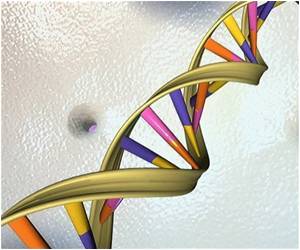According to a new study a combination of genetic and neurobiological approaches to establish that synaptic mutations worsen the risk of autism spectrum disorders (ASDs).

In their new study, Leblond and collaborators identified mutations altering SHANK2, a gene that encodes a scaffolding protein located at synapses (contacts between neuronal cells). The researchers showed that several of the mutations observed in patients reduced the number of synapses in neuronal cell cultures. Further genomic analysis of three patients carrying SHANK2 deletions identified additional rare genomic imbalances, previously associated with other neuropsychiatric disorders, that could act as modifier genes by modulating the disorder.
These results emphasise the importance of synaptic gene dysfunction in ASD and also highlight a role for modifier genes, confirming a "multiple hit model" for ASD. "A better knowledge of these genetic interactions will be necessary to understand the complex inheritance pattern of ASD", concludes Thomas Bourgeron, an author on the paper.
Source-Eurekalert












